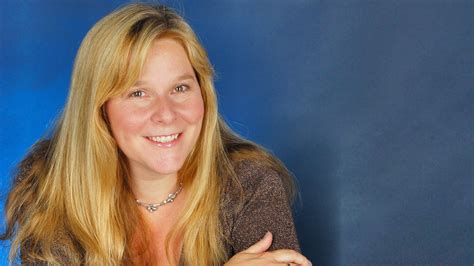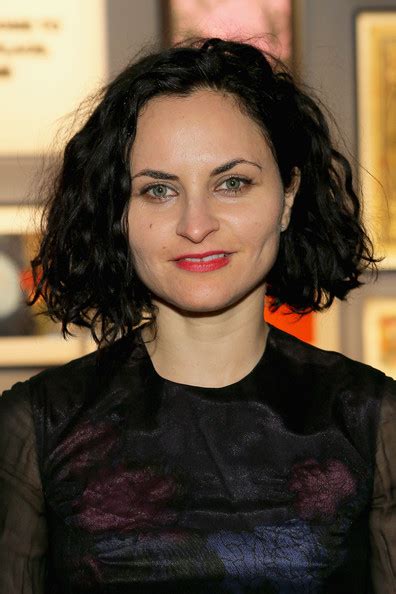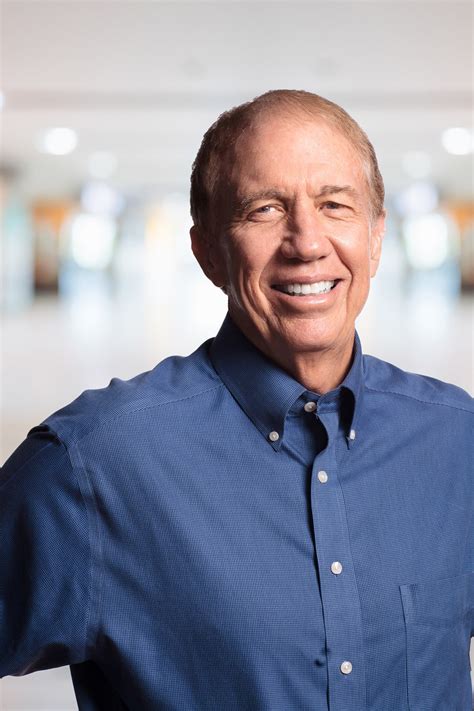A Quote by Hans-Ulrich Obrist
Our economy's growth functions by inciting us to produce more and more with each passing year. In turn, we require cultural forms to enable us to sort through the glut, and our rituals are once again directed towards the immaterial, towards quality and not quantity.
Related Quotes
Ka is a wheel; its one purpose is to turn. The spin of ka always brings us back to the same place, to face and reface our mistakes and defeats until we can learn from them. When we learn from the past, the wheel continues to move forward, towards growth and evolution. When we don’t, the wheel spins backward, and we are given another chance. If once more we squander the opportunity, the wheel continues its rotation towards devolution, or destruction.
Addressing the climate and biodiversity crises requires us to radically change our economic models, moving away from economic growth as the over-riding measure of progress and moving instead towards improving health and wellbeing for people and nature. That means a different economic model taking us towards a sustainable economy.
works of art feel towards human beings exactly as we do towards ghosts. The transparency of spectres, the diffuseness in space which lets them drift through doors and walls, and their smell of death, disgust us not more than we disgust works of art by our meaninglessness, our diffuseness in time which lets us drift through three score years and ten without a quarter as much significance as a picture establishes instantaneously.
Whatever impatience we may feel towards our neighbor, and whatever indignation our race may rouse in us, we are chained one to another, and, companions in labour and misfortune, have everything to lose by mutual recrimination and reproach. Let us be silent as to each other's weakness, helpful, tolerant, many, tender towards each other! Or, if we cannot feel tenderness, may we at least feel pity!
Hope is like the sun, which, as we journey towards it, casts the shadow of our burden behind us. ...Hope sweetens the memory of experiences well loved. It tempers our troubles to our growth and our strength. It befriends us in the dark hours, excites us in bright ones. It lends promise to the future and purpose to the past. It turns discouragement to determination. Samuel Smiles
The number of the hours in a day is fixed, but the quantity and quality of energy available to us is not. It is our most precious resource. The more we take responsibility for the energy we bring to the world, the more empowered and productive we become. The more we blame others or external circumstances, the more negative and compromised our energy is likely to be.
When the faith is strong enough, it is sufficient just to be. Its a journey towards simplicity, towards quietness, towards a kind of joy that is not in time. Its a journey that has taken us from primary identification with our body and our psyche, on to an identification with God, and ultimately beyond identification.
When the faith is strong enough, it is sufficient just to be. It's a journey towards simplicity, towards quietness, towards a kind of joy that is not in time. It's a journey that has taken us from primary identification with our body and our psyche, on to an identification with God, and ultimately beyond identification.
Who you really are, is an immaterial soul and the body is an external thing that's sort of an encrustation your soul. So this has important implications for Plotinus' ethics, because his ethics are basically all about encouraging us to turn away from the body and turn towards these higher principles, so universal soul, universal intellect and ultimately the One.
If we wish to know about a man, we ask 'what is his story--his real, inmost story?'--for each of us is a biography, a story. Each of us is a singular narrative, which is constructed, continually, unconsciously, by, through, and in us--through our perceptions, our feelings, our thoughts, our actions; and, not least, our discourse, our spoken narrations. Biologically, physiologically, we are not so different from each other; historically, as narratives--we are each of us unique.



































